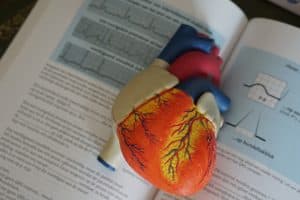Merck’s osteoporosis candidate shows some promise in trials
pharmafile | September 16, 2009 | News story | Research and Development, Sales and Marketing | Cancer, Merck
Merck & Co's investigational cathepsin K inhibitor odanacatib has shown some promise in a trial to treat osteoporosis in postmenopausal women.
But data from a phase IIb clinical study showed the once-weekly oral treatment's positive effects disappeared quickly after treatment was stopped.
Increases in lower backbone mineral density (BMD) were reversed over the next 12 months after treatment with the osteoporosis candidate was halted, but BMD in the hip still remained greater than at the start of the trial.
Moreover, patients who had three years of odanacatib saw increased BMD at key fracture sites with little impact on the formation of new bone.
"The 'rapid off' effect results showed that the drug's effect did not persist long after the drug cleared the body," said Art Santora, executive director clinical research at Merck Research Labs.
The continued increases in BMD seen at three years added to the existing scientific evidence for odanacatib's potential as a novel osteoporosis treatment option, he added.
The findings were presented at the annual meeting of the American Society for Bone and Mineral Research.
Odanacatib is currently in phase III trials to determine its effect on vertebral, hip and non-vertebral fractures.
It works by inhibiting the cathepsin K enzyme, which helps break down bone tissue, particularly the protein components of bone.
Patients who took odanacatib for three years saw BMD increases of 8% at the lumbar spine, 6% at the total hip, 5% at the femoral neck of the hip and 7% at the trochanter of the hip.
If successful, the drug could be set to enter a crowded marketplace whose value has dropped beneath a recent rash of generic launches.
Existing branded osteoporosis treatments include GlaxoSmithKline/Roche's Boniva/Bonviva, Lilly's Evista and Forteo, and Novartis' Reclast/Aclasta.
The market has been dominated by bisphosphonate drugs such as Merck's Fosamax, but this lost its US patent last year.
However, this summer GSK signed a deal with Amgen to co-market the latter's new treatment denosumab in Europe and other markets.
Awaiting approval in the US and Europe, denosumab could earn $1 billion in osteoporosis sales.
Last year odanacatib also showed promising results in phase II trials treating breast cancer which had spread to bones.
a2a_linkname=”Pharmafocus”;a2a_linkurl=”http://www.pharmafocus.com”;a2a_num_services=6;a2a_prioritize=[”twitter”,”linkedin”,”facebook”,”delicious”,”friendfeed”,”stumbleupon”,”reddit”];
Related Content

TILT Biotherapeutics shares data on TILT-123 with Keytruda for ovarian cancer treatment
TILT Biotherapeutics has announced promising preliminary safety and efficacy data from its ongoing phase 1 …

Geneos Therapeutics shares data from phase 1/2 trial for cancer vaccine
Geneos Therapeutics has announced that it has published positive safety, immunogenicity and efficacy data from …

FDA approves Merck’s Winrevair for PAH treatment
Merck, known as MSD outside of the US and Canada, has announced that the US …








